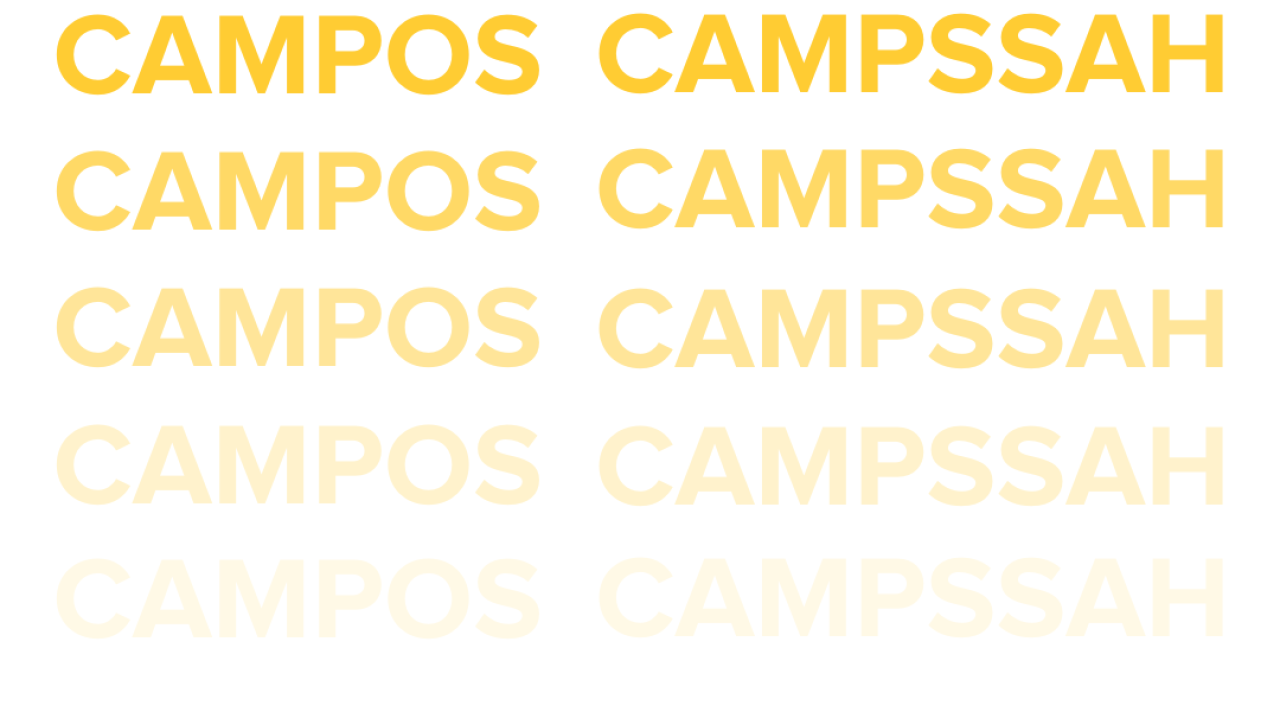
Meet the 2024 CAMPOS and CAMPSSAH Faculty Scholars
The Office of Academic Diversity welcomed nine new UC Davis faculty into CAMPOS and CAMPSSAH
CAMPOS Research Colloquium
These informal talks feature the cutting-edge research of CAMPOS and affiliated faculty. They are available to attend in-person or on Zoom. Visit our webpage to learn more.
2024-2025 Colloquia Schedule
23-Oct: Alan Lombard, Biochemistry and Molecular Medicine and Urology
20-Nov: Veronica Morales, Civil and Environmental Engineering
4-Dec: Jasquelin Peña, Civil and Environmental Engineering
8-Jan: Jairo Fúquene-Patiño, Statistics
22-Jan: Maike Sonnewald, Computer Science
5-Feb: Natalia Caporale, Neurobiology, Physiology and Behavior
19-Feb: Felicity Muth, Neurobiology, Physiology and Behavior
5-Mar: Martine Therrien, Molecular and Cellular Biology
19-Mar: Tiffani Johnson, Emergency Medicine
2-Apr: Jesus Velazquez, Chemistry
16-Apr: Madeline Nieves-Cintron, Pharmacology
30-Apr: Marco Gonzalez, Neurology
14-May: Marie Heffen, Chemistry
28-May: Joseph Teran, Mathematics
11-Jun: Rebecca M. Calisi Rodríguez, Neurobiology, Physiology and Behavior
The Office of Academic Diversity—a unit within the Division of Diversity, Equity and Inclusion—welcomed nine new UC Davis faculty into two programs that are integral to UC Davis’s commitment to uplifting a diversity of scholarship in higher education.
These nine faculty were officially inducted into the Center for the Advancement of Multicultural Perspectives on Science (CAMPOS), and the Center for the Advancement of Multicultural Perspectives on Social Sciences, Arts, and Humanities (CAMPSSAH) programs during a ceremony on November 6 at the Jan Shrem and Maria Manetti Shrem Museum of Art. Four faculty were inducted into the CAMPOS program, while five were inducted into CAMPSSAH.
CAMPOS: 50 scholars, 10 years of impact
CAMPOS, which is currently being led by Professor of Pathology and Laboratory Medicine Verónica Martínez-Cerdeño, emerged from a previous National Science Foundation ADVANCE grant to expand the presence of women and historically marginalized faculty in STEMM at UC Davis. The 2024-25 academic year marks the 10th anniversary of the CAMPOS program. With this year’s newest cohort, there are a total of 50 CAMPOS Faculty Scholars with appointments across 38 departments in eight colleges and schools.
CAMPSSAH: Diversity in the arts
CAMPSSAH builds on the Impact Recruitment Initiative that began with calls for faculty focused on the experiences, contributions, and aspirations of African-American and African Diaspora students and communities. Headed by Faculty Director Maxine Craig, who is a professor of sociology), CAMPSSAH works to recruit, integrate and retain faculty who bring multicultural perspectives to the social sciences, humanities and the arts. There are a total of 24 CAMPSSAH Scholars with appointments in 18 departments and four colleges and schools.
Welcome to the four new 2024 CAMPOS Faculty Scholars:
Rodolfo Urbano, Assistant Professor
Pathology, Microbiology and Immunology
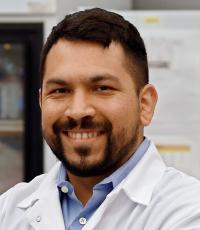
Urbano specializes in microbial-host interactions investigating the role of cytoskeleton proteins in the immune response to infection. His lab characterizes the functions of actin-binding proteins that are involved in limiting microbial dissemination. He studies how immune activation modifies the mechanical properties of cells to facilitate the capture and elimination of pathogens. Urbano graduated from the University of Washington with a Ph.D. in Microbiology. He then worked as a postdoctoral fellow at Yale University applying CRISPR-Cas9 gene-knockout methods to learn about host immunity. In 2019, he was awarded the Hanna H. Gray Fellowship from Howard Hughes Medical Institute.
Charles Wilkes II, Assistant Professor
School of Education
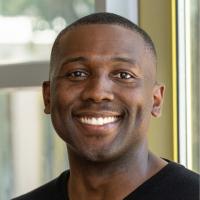
Wilkes’ research attends to the teaching and learning of Black learners in K-16 contexts. One strand of his research has focused on Black learners’ experiences in mathematics classrooms. A second strand of his research attends to how mathematics instruction supports the learning of mathematical content and the nurturing of positive mathematics identities for Black learners. The third and final strand of his research is supporting pre-service teachers’ and in-service teachers’ development of teaching equitable practices through interventions and professional development. Learn more about him here.
Vladimir Diaz-Ochoa, Assistant Professor
Pathology, Microbiology and Immunology
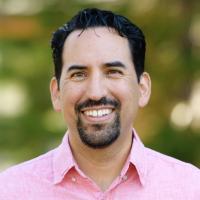
Diaz-Ochoa’s work seeks to understand the molecular basis by which susceptibility to pathogens as well as inflammatory pathologies are linked to NRAMP1 in humans and animals. He leverages both microbial and host genetic systems to uncover mechanisms of immunity and microbial pathogenesis during host-pathogen interactions. As a postdoctoral scholar under Renée Tsolis at UC Davis, they developed an animal model that helped link the environment to blunted immune responses to bacterial infections. Diaz-Ochoa earned his B.S. in biological sciences in 2009 and his Ph.D. in biomedical science in 2015 from the University of California, Irvine. In 2020, he was a UC Davis Chancellor Postdoctoral Fellow. He has shown a vested interest in supporting equitable education. As a UC Davis Professors for the Future Fellow, he developed and implemented a program that recognized imposter syndrome, especially in minority participants.
Antonio Serapio-Palacios, Assistant Professor
Microbiology and Molecular Genetics
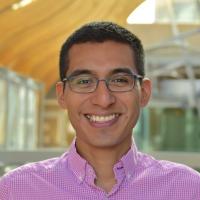
Serapio-Palacios’s research hones in on the role of bacterial effector proteins in manipulating cellular processes, particularly in the host-pathogen interface and interbacterial competition. He established a research program focused on host-pathogen interaction and the molecular mechanism that bacterial pathogens use to subvert host cell pathways. He also launched a research focus investigating how pathogens and commensal bacteria use sophisticated strategies to overcome bacterial competitors. Serapio-Palacios received his B.S. in clinical chemistry from the University of Veracruz, Mexico in 2009 and his Ph.D. in cell biology from the Center for Research and Advance Studies of the IPN, Mexico in 2016. He worked with Michael Smith as a research associate and fellow at the University of British Columbia, Vancouver. In his postdoctoral work, he gained expertise and experience in understanding the impact of the microbiome on human diseases. He has extensive experience in mentoring students from diverse backgrounds as a Biology Undergraduate Diversity in Research (BUDR) Mentor. Serapio-Palacios will join UC Davis in 2025.
Welcome to the five new 2024 CAMPSSAH Faculty Scholars:
Antoine S. Johnson, Assistant Professor
African American and African Studies
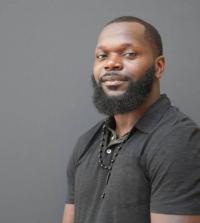
Antoine S. Johnson, Ph.D. was born and raised in East Oakland, California. After graduating from Castlemont High School, he attended California State University, Sacramento where he earned his B.A. and M.A. in American history. His master's thesis examined rap music during hip hop's Golden Era, from roughly 1987 to 1993, and how rappers utilized their platforms to raise awareness on issues in poor and working-class Black communities, situating themselves within the Black intellectual tradition. Interest in how Black people confronted the crack and AIDS epidemic led to him attending the University of California, San Francisco, where he earned his Ph.D. in the history of health sciences. Johnson's dissertation explores Black HIV/AIDS activism in the Bay Area, and he is currently working on the book manuscript for this project. In 2023, he received the Jack D. Pressman-Burroughs Wellcome Fund Career Development Award from the American Association for the History of Medicine.
Natalia Duong, Assistant Professor
Asian American Studies; Science & Technology Studies
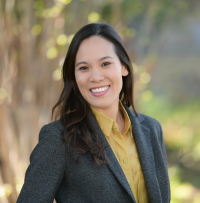
Natalia Duong’s research weaves performance studies, transnational Asian American studies, disability studies, and studies of the environment. Her current book project, Chemical Diasporas, examines the spread of the herbicide Agent Orange through a study of cultural media, disability law and community-engaged research in Vietnam. Her research has been published in the Canadian Review of American Studies, the Journal of Dramatic Theory and Criticism, Dance Research, Catalyst: feminism, theory, technoscience, and in the edited anthology Crip Genealogies (Duke University Press). In addition to her scholarly writing, Duong makes performances as a dramaturg, director, and choreographer focusing in particular on new plays written by and about folks in the Asian diaspora. She received a Ph.D. in performance studies with a designated emphasis in women, gender and sexuality from the University of California, Berkeley. Prior to joining UC Davis, she taught at UC Berkeley and Pomona College and was a UC President’s Postdoctoral Fellow in English at UCLA. Learn more at her website: https://www.nataliaduong.com/.
Cj Jackson, Assistant Professor
Native American Studies

Cj Jackson is a Diné writer and scholar from the Navajo Nation in Arizona. Their research involves reading the work of Native poets as sites for theorizing relational ethics and for reclaiming Indigenous forms of intimacy. Their current book project works at the intersection of Native and Indigenous Studies, theories of gender and sexuality, environmental studies, and affect to challenge the cultural dispossession of queer Indigenous bodies. They received their Ph.D. in English from the University of California, Riverside.
Bianca Hand, Assistant Professor
Classics
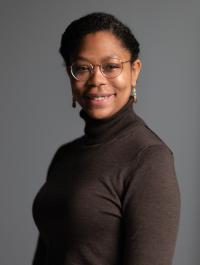
At its core, Bianca Hand’s research stems from a fascination with the interconnected nature of the ancient world. She focuses broadly on how this interconnectivity affects artistic production through the lens of alterity, style, and materiality in the art and architecture of ancient Western Asia and the Eastern Mediterranean region. Her current research project reconsiders the role of visual alterity in the reliefs and architecture of palaces built during the Neo-Assyrian empire in present-day northern Iraq. Her other research projects explore the 19th and 20th century reception of ancient Western Asian art and the application of post-colonial theory to questions pertaining to the ancient world, such as the effect of depicted violence against both humans and foreign landscapes depicted in Neo-Assyrian palatial relief programs. She earned her Ph.D. in history of art at Johns Hopkins University in 2024 after having received the 24 month Ittleson Fellowship at the Center for Advanced Study in the Visual Arts at the National Gallery of Art in Washington, DC and a History of Art and Visual Culture Fellowship with the Department of Ancient Near Eastern Art at the Metropolitan Museum of Art in New York City.
José Manuel Santillana Blanco, Assistant Professor
American Studies
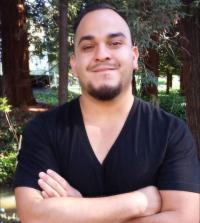
José Manuel Santillana Blanco is an activist, scholar and storyteller. As the son of Mexican immigrant parents, Manuel was politicized within the rural migrant farmworker landscapes of central California. He received the 2022-2024 University of California President’s and Andrew W. Mellon Foundation Postdoctoral Fellowship in the Department of American Studies at UC Davis. Drawing on the work of Black, Latinx and Indigenous decolonial thinkers, his work explores the ways Black, Immigrant and Indigenous women-led community struggles across the United States have been foundational to our understanding of racialized social life, ecological violence and resistance across entangled geographies. His work titled Racial Motherhood Ecologies examines the intricate role local environmental histories play in shaping ecologies across varying geographies, especially in relation to the ways in which motherhood becomes salient as a mobilizing force to address and disrupt structural violence in their communities. José Manuel’s work has been published in Aztlán: A Journal for Chicano Studies, University of Washington Press, University of Nebraska Press and Routledge. He is the recipient of the Ford Foundation Dissertation Fellowship, Interdisciplinary Dissertation Fellowship at the Interdisciplinary Center for the Study of Global Change, and University of Minnesota Doctoral Dissertation Fellowship. Learn more at his website: https://www.jmsantillanablanco.com/.
